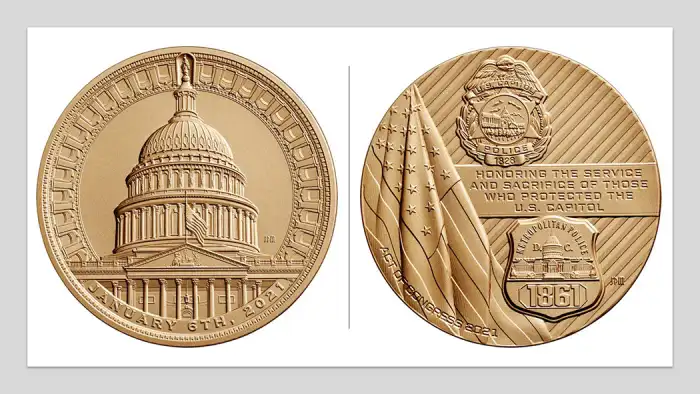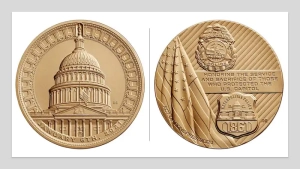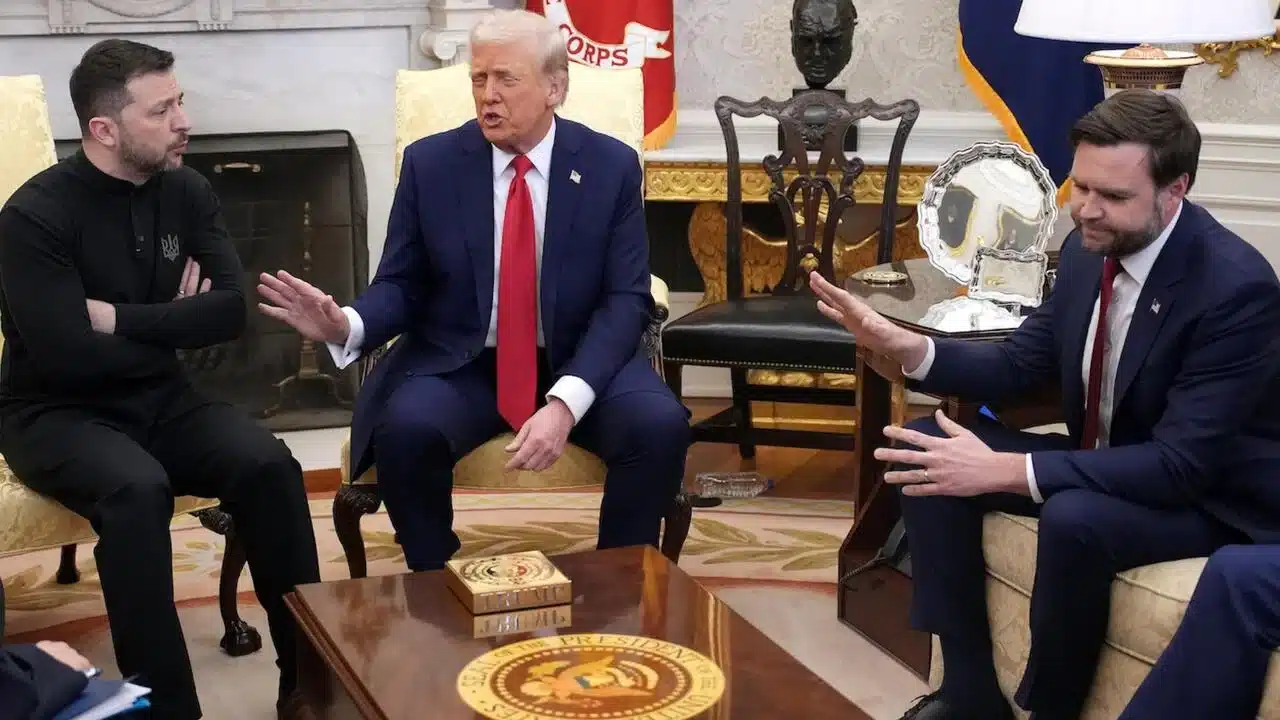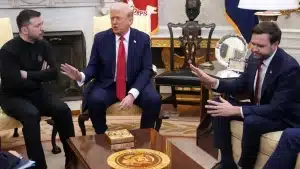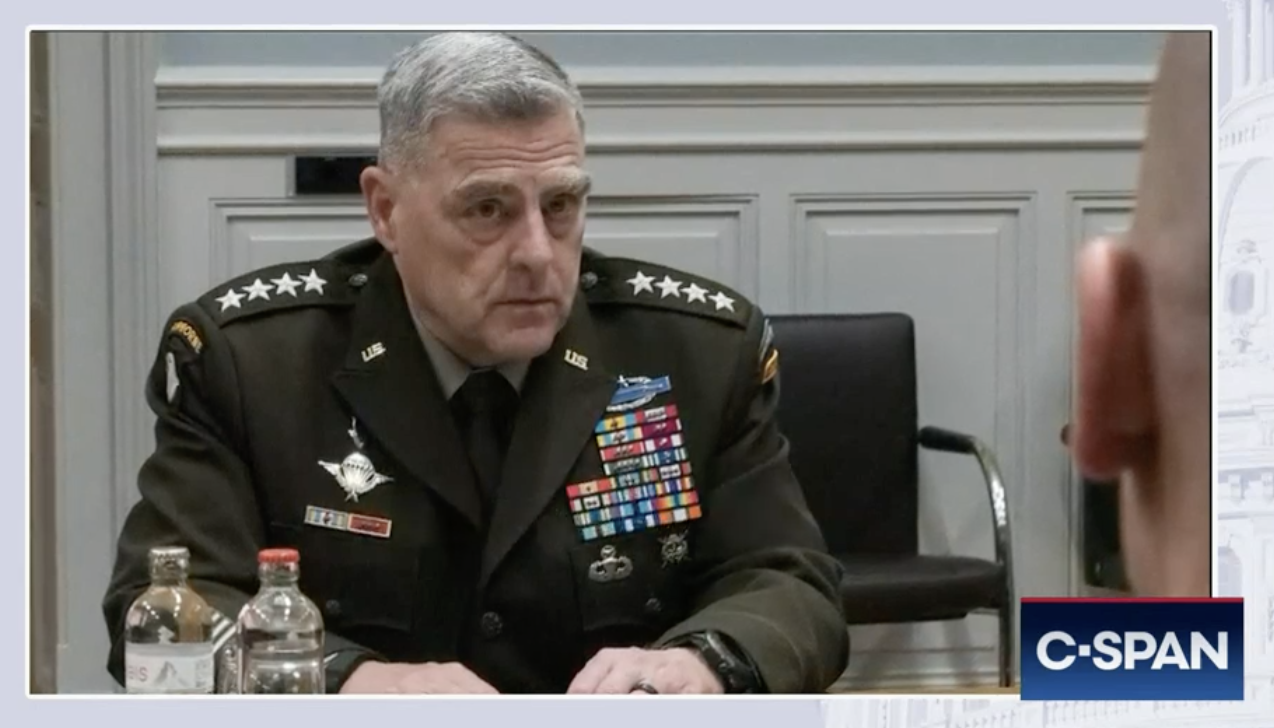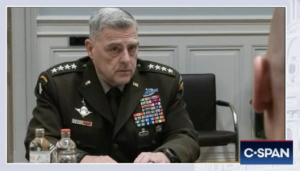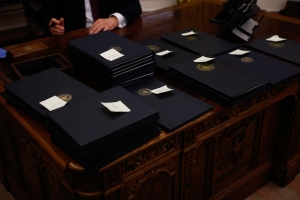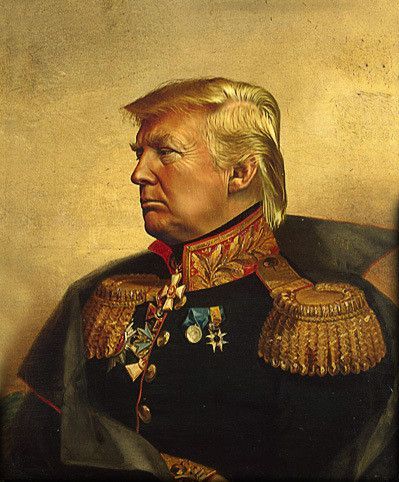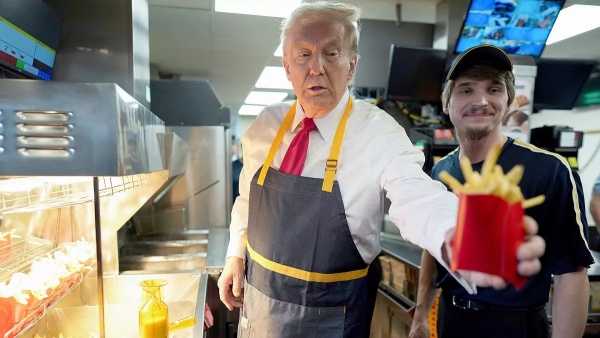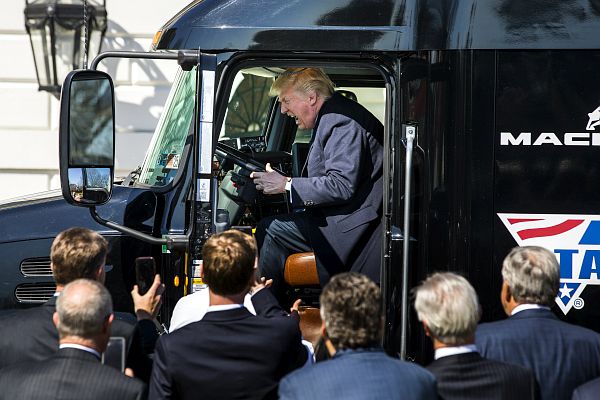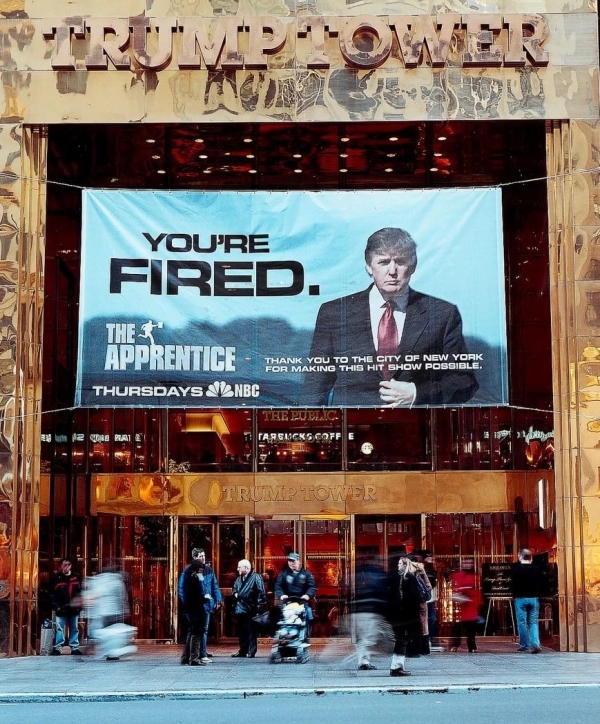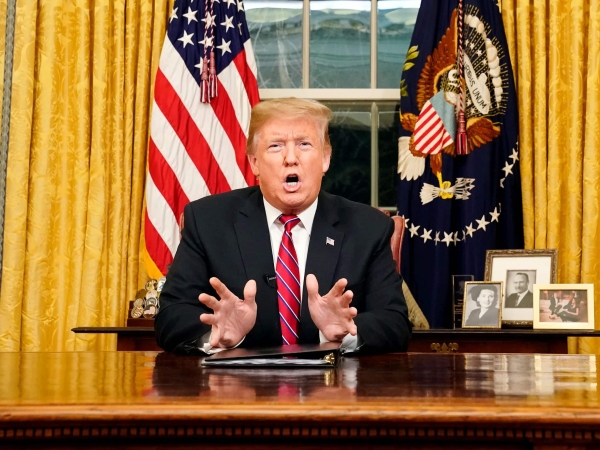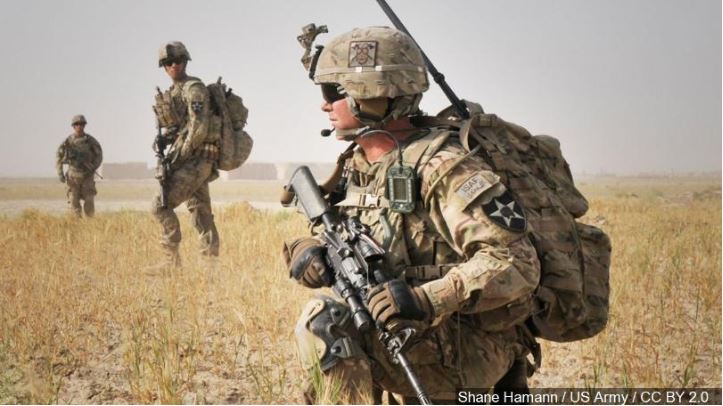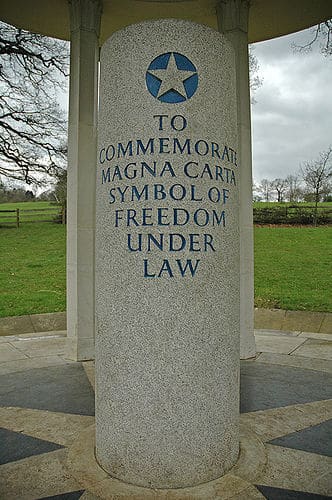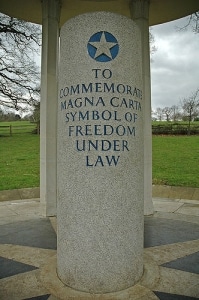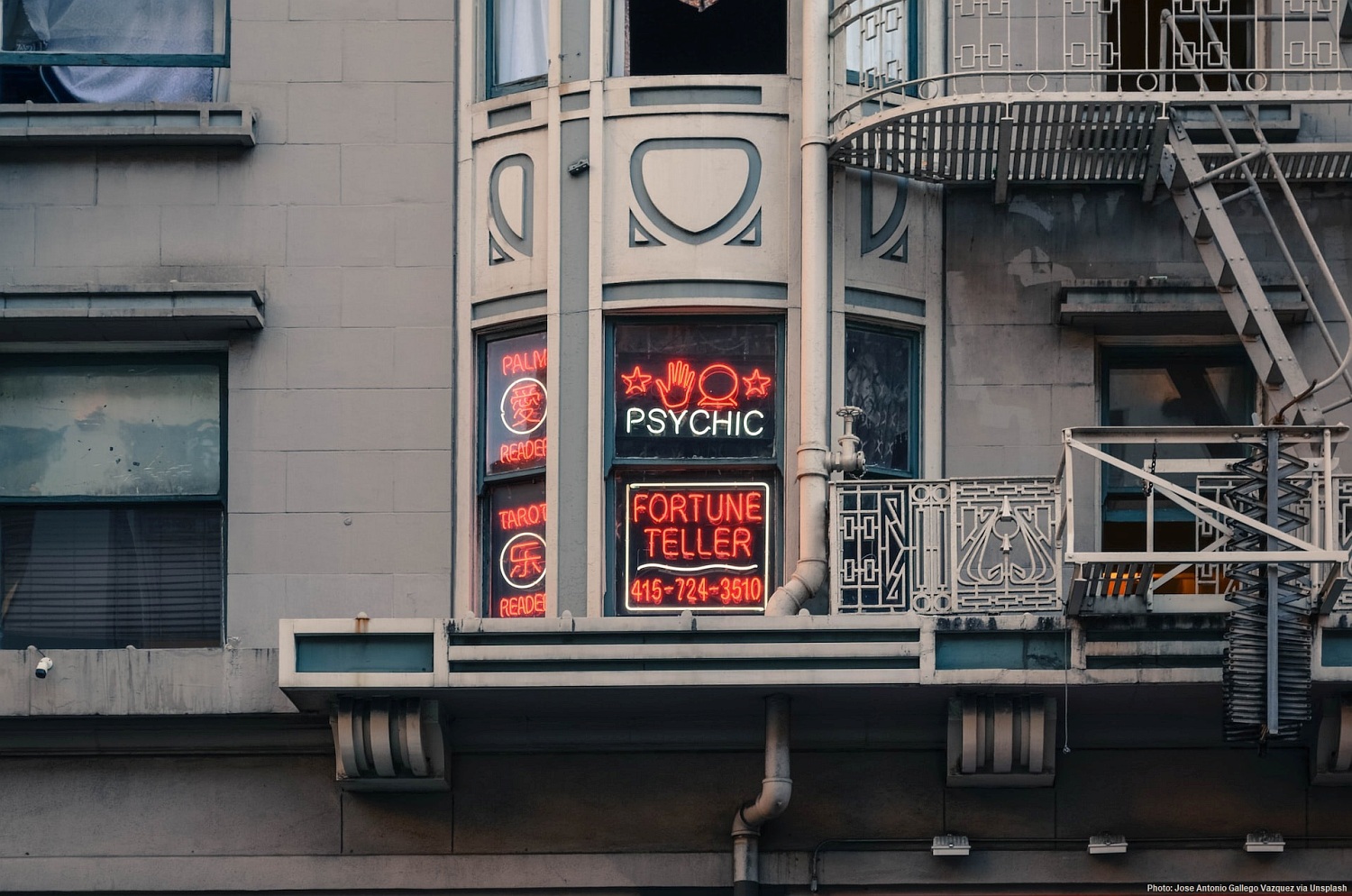[NB: check the byline, thanks. /~Rayne]
In this post:
Overview
Russia’s involvement
H. R. McMaster’s observations
Olivia Troye’s observations
~ ~ ~
Overview
Before the September 10th presidential debate, did you notice Trump and his campaign never backed off on the Arlington National Cemetery brouhaha?
Did you notice they actually leaned into their desecration of the cemetery with a campaign event?
The profanement of war dead is a taboo which would have ended other politicians’ campaigns and political careers. Why did the Trump campaign continue so firmly in this direction?
Did you notice how much this offensive behavior sucked up attention from Trump’s other deficits as a candidate and a human being?
Did you notice how much less we were laughing at his campaign after ANC but before Trump’s disastrous debate performance?
The violation of regulations and norms at ANC appear to be redirection: if the candidate and campaign act out badly enough, the subject is changed. The left would stop laughing at him.
Trump’s campaign tried to flip the public’s perspective of the ANC to make Trump the victim. They found Gold Star family members willing to stick their necks out for him to rationalize the offensive behavior. Very DARVO if you think about it; his campaign abused the law, norms, the rights of others, he walked on the graves of war dead for his own benefit, but somehow he’s the victim.
But again, this was and is redirection. What have they been trying so damned hard to hide? It’s something far worse than desecrating a national cemetery for war dead, violating regulations and assaulting a federal employee in the process.
Is Trump responsible for those killed in Afghanistan during his administration and through the withdrawal during Biden’s first year in office because of his negotiations with the Taliban and his subsequent hurried order to withdraw?
Is it because both former Homeland Security and Counter terrorism advisor to Mike Pence Olivia Troye spoke out at the Democratic National Convention decrying Trump’s leadership?
Is it because Trump’s former National Security Advisor H. R. McMaster published a book released within days of the brouhaha at the ANC – a book in which Trump and his White House appear to be unfocused, unserious, and in thrall to hostile foreign nations?
Is it because Troye and McMaster know exactly how much blame Trump personally bears for those Gold Star dead on whose graves he campaigned?
~ ~ ~
Russia’s involvement
Many of you read Marcy’s post about Trump’s effort to hide his attempt to assassinate Mike Pence on January 6. Special Counsel Smith likely has all he needs for prosecution, but Trump doesn’t want his voters to know more about his threats to Pence’s life.
I believe Trump is also trying to hide something more from his potential voters: his role in the losses experienced up to and during the U.S. final pullout from Afghanistan. He may have been badly played by joint efforts by Russia and the Taliban, ultimately damaging the U.S. military’s efforts to depart in an orderly fashion without U.S. troop and coalition force casualties while leaving a functional Afghanistan government behind.
I’m sharing a partial timeline at this link which includes events related to Afghanistan during Trump’s term in office.
One thing stuck in my craw back when we tried to crowd source a timeline about a then-unknown issue an unidentified whistleblower reported about in 2019.
Why the hell was Russia so deeply engaged in the US-Taliban negotiations? It stuck out like a sore thumb to me. Unfortunately the media’s attention was swept away by the revelation of Trump’s attempted quid pro quo with Ukraine’s Volodymyr Zelensky.
After so many troops had been killed by Taliban, attributed to cash bounties offered by Russia, why was Russia involved in negotiations?
There was push back about Trump inviting the Taliban to Camp David to negotiate a deal – a move which would have legitimized the Taliban – thereby preventing Trump from going through with the invitation.
Did Putin encourage Trump to extend this invitation in order to undermine U.S. foreign policy, making us look weak enough to cave to a terrorist organization?
Why has this issue not been revisited by the media instead of going on and on for years now about Biden’s execution of the exit from Afghanistan?
When talking heads complained Biden should have either refused to honor Trump’s agreement and extend the exit past August 31, did they take into consideration possible traps which may have been set up by then-Secretary of State Mike Pompeo and Vladimir Putin should the agreement not be effected as negotiated?
Granted, while Pompeo was negotiating with the Taliban and Russia over the terms of the US’s exit, there had been a little problem with an Iranian missile launch which failed and John Bolton’s departure from his role as Director of National Intelligence. Perhaps the media’s attention was redirected by these events as much as the brouhaha building over a then-unknown whistleblower and their complaint.
And yet after all the tension over Russia’s interference in the 2016 election and the subsequent investigations, the apparent inclusion of Russia in the Afghanistan exit negotiations received scant attention.
Why is this not a topic for discussion now, when the guy ultimately responsible for the terms of withdrawal is running again for office?
The same guy who signed off on the agreement having made no effective response to troop deaths after Russian bounties were reported?
~ ~ ~
H. R. McMaster’s Observations
During the September 10 debate, Kamala Harris demonstrated just how easy it is to manipulate Trump. She brought up one of his obvious obsessions and he fell for it like Wile E. Coyote tripping into Road Runner’s Acme-branded holes.
It wouldn’t take much for Putin to do the same thing repeatedly. He’s had plenty of time and resources to learn about Trump’s narcissistic foibles and he’s likely applied this knowledge on a regular basis.
I’ve been reading H. R. McMaster’s latest book, “At War With Ourselves.” I must point out that McMaster isn’t a reliable narrator; it’s not clear if he played a game with the meaning of “collusion” or if he genuinely believed Trump didn’t collude with Russia in order to win the 2016 election.
But McMaster’s recollection of the Trump White House’s toxicity, riddled with internecine drama like Henry VIII or Louis XIV’s court, depicts a weak leader manipulated by many both inside the White House and out.
You can experience the flavor of the problem through Nicolas Niarchos’s review for The New York Times in which he describes how China’s Xi bent Trump over:
As McMaster writes in “At War With Ourselves,” the president could sometimes be kept on the straight and narrow with a clever dose of reverse psychology (Xi Jinping wants you to say this, Xi Jinping wants you to say that). But just as often, McMaster shows Trump to have been an unpredictable waffler who undermined himself to the advantage of his competitors on the world stage.
In November 2017, President Trump visited China on the third leg of a 13-day trip around Asia. It was his “most consequential” destination, McMaster explains. As they flew to Beijing, he warned Trump that Xi would try to trick him into saying something that was good for China, but bad for the United States and its allies. “The C.C.P.’s favorite phrase, ‘win-win,’” he recalls telling his boss at one point, “actually meant that China won twice.”
Trump seemed to hear him, but in the Great Hall of the People, the president strayed from his talking points. He agreed with Xi that military exercises in South Korea were “provocative” and a “waste of money” and suggested that China might have a legitimate claim to Japan’s Senkaku Islands. McMaster, his stomach sinking, passed a note to Gen. John Kelly, the chief of staff: Xi “ate our lunch,” it read.
McMaster described Putin’s effort to influence Trump during the 2017 G20 summit. Putin pressured Trump on shipments of Javelins to Ukraine, the same kind of arms shipments which were a bone of contention during the RNC’s efforts to draft a platform in 2016, and again during the run-up to Trump’s quid pro quo attempt with Ukraine’s Volodymyr Zelensky.
To appeal to Trump’s optimistic interpretation of the U.S.-Soviet alliance during World War II, Putin showed Trump a video of Russia’s Northern Fleet salvaging the USS Thomas Donaldson, a 7,200-ton Lend-Lease ship that a German U-boat had sunk in the arctic in 1945, before it could deliver its cargo of Sherman tanks. The idea was to evoke the memory of the United States and the Soviet Union as allies during World War II and to keep alive the pipe dream of conciliation with Putin’s Kremlin as the best way to advance both countries’ interests.
Putin used his time with Trump to launch a sophisticated and sustained campaign to manipulate him. Profilers and psychological operations officers at Russia’s intelligence services must have been working overtime. Even as the meeting stretched into its second hour, Putin did not run out of material. To suggest moral equivalence between U.S. interventions in Latin America and the Russian invasion of Ukraine, Putin cited the “Roosevelt Corollary” to the Monroe Doctrine, a foreign policy declaration by U.S. president Theodore Roosevelt in 1904–5 stating that the United States could intervene in a country’s internal affairs if that country were engaged in chronic wrongdoing.
At the dinner later that evening, as the two leaders squared off for a long conversation, Putin handed Trump a list of ideas for collaboration, including the development of an amusement park near Moscow. I wondered if Putin hoped the list would leak, or if he planned to leak it later, to revive stories of Trump’s failed pursuit of business deals in Russia, feed the Russian collusion narrative, weaken Trump, and divide Americans further. (188-189)
It’s unfortunate for us that McMaster was no longer NSA when Trump met with Putin in Helsinki in July 2018; he might have written about that as he did the 2017 G20. We can only imagine how much worse Putin’s discussion with Trump was in Helsinki if Putin felt he’d achieved some success with his G20 ratcheting on Trump’s weaknesses.
What’s infuriating and frustrating about this text is McMaster’s dismissive attitude about “Russiagate” and allegations of “collusion” which he blames for increasing Trump’s defensiveness on a number of topics – but as already noted, this is what makes McMaster unreliable as a narrator.
And yet McMaster’s conflict about the intimacy of Trump’s relationship with Putin may have been the last straw leading to his termination as NSA.
JUST A few days after Russian assassins deployed the nerve agent in Salisbury, poisoning Sergei Skripal and his daughter, a story appeared in the New York Post with the headline “Putin Heaps Praise on Trump, Pans U.S. Politics.” When I walked into the Oval Office that evening, on another matter, the president had a copy of the article and was writing a note to the Russian leader across the page with a fat black Sharpie. He asked me to get the clipping to Putin. I took it with me. When I got home that night, I confided to Katie, “After over a year in this job, I cannot understand Putin’s hold on Trump.”
News was breaking about the poisoning in England, and I was certain that Putin would use Trump’s annotated clipping to embarrass him and provide cover for the attack. The next morning, I stuck to procedures and gave the clipping to the White House Office of the Staff Secretary, which manages any paper coming into and out of the Oval Office. I asked them to take their time clearing it and to come back to me before sending it to Putin via his embassy in Washington. Later, as evidence mounted that the Kremlin and, very likely, Putin himself had ordered the nerve agent attack on Skripal, I told them not to send it.
I told Trump, “Mr. President, do you remember the article and note you told me to send to Putin? I didn’t send it. Putin would almost certainly have used the note to embarrass you, alleviate pressure over the Skripal incident, and reinforce the narrative that you are somehow in the Kremlin’s pocket.”
Trump was angry. “You should have done what I told you to do, General.” “Mr. President, you can be angry at me, but you have to know that I was acting in your interest.” (308-309)
How often had Trump sent mash notes to Putin during his term in office? Was he sending them even during McMaster’s tenure as NSA but through another contact?
What were the prompts for these missives? Did any exchanges between Trump and Putin out of the public’s eye shape Trump’s agreement with the Taliban and the subsequent withdrawal from Afghanistan?
Did Trump have any exchanges like this which may have led him to take no action as U.S. troops were killed after it was learned Russia offered bounties on our service persons serving in Afghanistan?
Has Trump been sending mash notes to Putin even after leaving office through other contacts?
~ ~ ~
Olivia Troye’s observations
McMaster waited until three years after the U.S. exited Afghanistan to share his experience working in Trump’s White House. Publication date of his book was August 27, 2024 — three days before the third anniversary of the U.S. exit from Afghanistan and the day after Trump and his campaign violated ANC regulations profaning war dead.
Olivia Troye didn’t wait; her speech at the DNC convention this August wasn’t her first public statement about Trump’s foreign policy and general leadership. Two months after she left her role in 2020, she unloaded on the Trump administration particularly on Trump for his narcissistic approach to protecting the nation as the COVID pandemic unfolded.
She not only wrote a pointed Twitter thread but published a campaign video in which she as a lifelong Republican said she was voting for Joe Biden after her experience working in the Trump administration.
She unloaded again ten days before the last U.S. troops left Afghanistan in 2021, in response to ill-informed smears by right-wing mouthpieces, some of whom had been obstructive about the Special Immigrant Visa program (SIV) which should have helped more Afghan allies enter the U.S.
Olivia of Troye @OliviaTroye
🧵There were cabinet mtgs about this during the Trump Admin where Stephen Miller would peddle his racist hysteria about Iraq & Afghanistan. He & his enablers across gov’t would undermine anyone who worked on solving the SIV issue by devastating the system at DHS & State.(1/7)
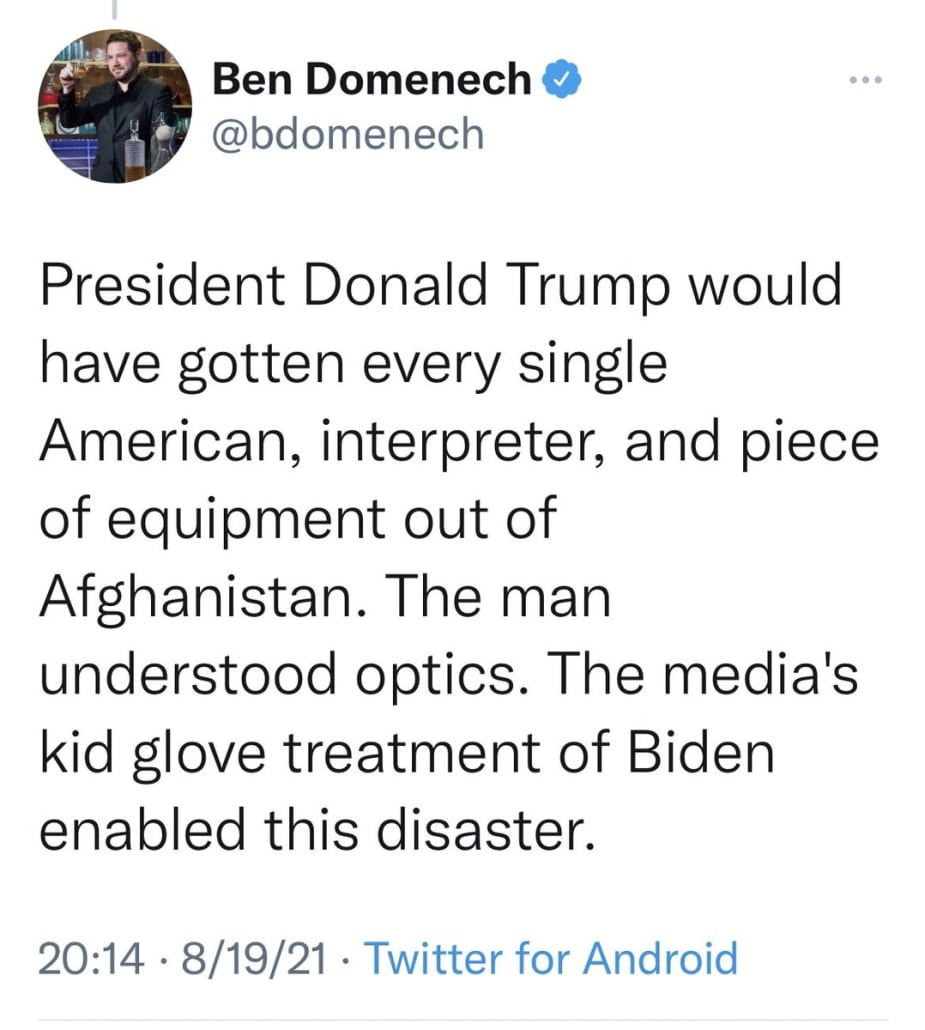
11:29 AM · Aug 20, 2021
I tracked this issue personally in my role during my WH tenure. Pence was fully aware of the problem. We got nowhere on it because Trump/S. Miller had watchdogs in place at DOJ, DHS, State & security agencies that made an already cumbersome SIV process even more challenging.(2/7)
11:29 AM · Aug 20, 2021
I met w/ numerous external organizations during my White House tenure who advocated for refugees & pleaded for help in getting US allies through the process. I got the phone calls & letters as the homeland security & CT advisor to Pence…(3/7)
11:29 AM · Aug 20, 2021
The system wouldn’t budge, regardless of how much this was argued about in National Security Council mtgs. The Pentagon weighed in saying we needed to get these allies through the process-Mattis/others sent memos. We all knew the urgency but the resources had been depleted.(4/7)
2:08 PM · Sep 17, 2021
The fear of people across the Trump Admin to counter these enablers was palpable. There were numerous behind closed door meetings held-strategizing how to navigate this issue. The Trump Admin had FOUR years…(5/7)
11:29 AM · Aug 20, 2021
..Trump had FOUR years-while putting this plan in place-to evacuate these Afghan allies who were the lifelines for many of us who spent time in Afghanistan. They’d been waiting a long time. The process slowed to a trickle for reviews/other “priorities”-then came to a halt.(6/7)
11:29 AM · Aug 20, 2021
To people like Ben Domenech, JD Vance & others who are making blanket statements & pushing narratives of convenience on Afganistan-especially on the SIV/allies issue-please, just stop. Your comments are uninformed & also hurtful. We see right through you.(7/8)
11:29 AM · Aug 20, 2021
Grateful for everyone advocating the urgency of getting our allies evacuated out of Afghanistan ASAP & those who are doing everything they can to help. It’s the least we can do for these individuals & it’s a matter of national security. The world is watching.(8/8)
11:29 AM · Aug 20, 2021
By the time Troye wrote this there were roughly 2300 U.S. troops on each of three shifts protecting the remaining facilities and personnel – a number wholly disproportionate to the number of Afghan fighters Trump’s agreement with the Taliban released from Afghan government detention.
There simply weren’t enough personnel to do everything well, thanks directly to Trump.
There were aggravating circumstances with the Taliban violating the agreement, thanks to Trump.
There was ample frustration trying to help Afghan citizens who’d helped the U.S. thanks to Trump allowing his little racist attack dog Stephen Miller to undermine the exit.
It would be nice if any credible journalist with experience covering defense and active war zones ever asked Olivia Troye if she observed any difficulties added to the withdrawal from Afghanistan by Russia or its proxies, or other hostile foreign nation, in addition to the obstructions created by Trump’s worst minions.
It’d be nice if journalists asked Troye if she ever observed exchanges as McMaster did, between the White House and Russia which were not made known to the public but were not classified.
Taking both Troye’s and McMaster’s observations into consideration, Trump fucked up Afghanistan for the sake of his re-election campaign and possibly ego stroking by Putin, leaving Biden a massive mess to clean up just as he fucked up the pandemic response. In both cases Americans died because of Trump’s fuckery.
And Trump had zero problems kissing Putin’s ass along the way.
~ ~ ~
Once again, the question: which part of this related to Afghanistan did Trump and his campaign believe needed to be obscured so badly they were willing to profane American war dead to that end?

